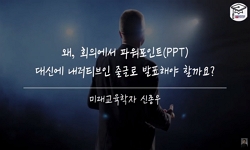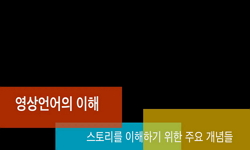This study intends to present a new direction for arts and culture education by interpreting the experiences of arts and culture education based on connectivism learning theory of art instructors and teachers practicing arts and culture education in s...
http://chineseinput.net/에서 pinyin(병음)방식으로 중국어를 변환할 수 있습니다.
변환된 중국어를 복사하여 사용하시면 됩니다.
- 中文 을 입력하시려면 zhongwen을 입력하시고 space를누르시면됩니다.
- 北京 을 입력하시려면 beijing을 입력하시고 space를 누르시면 됩니다.

Kop 연결주의 학습이론 기반 문화예술교육 프로그램 적용 = A Study on Cultural Arts Education Prograsm : Based on Kop Connectivism Learning Theory
한글로보기https://www.riss.kr/link?id=A109018022
- 저자
- 발행기관
- 학술지명
- 권호사항
-
발행연도
2024
-
작성언어
Korean
- 주제어
-
등재정보
KCI등재
-
자료형태
학술저널
-
수록면
539-565(27쪽)
- 제공처
-
0
상세조회 -
0
다운로드
부가정보
다국어 초록 (Multilingual Abstract)
This study intends to present a new direction for arts and culture education by interpreting the experiences of arts and culture education based on connectivism learning theory of art instructors and teachers practicing arts and culture education in school from the perspective of connectivism and future arts and culture education. To this end, the research question was set as the meaning of arts and culture education experiences based on connectivism learning theory of art instructors and teachers in charge who are practicing arts and cultural education.
In this study, after defining the basic concept of arts and culture education to solve the research problem, we discussed theoretically about arts and culture education in schools, connectivism, the era of open learning, and the digital native generation. And as a future arts and culture education, the meaning and value of arts and culture education based on connectivism learning theory was analyzed. Next, a narrative inquiry method was used as a research method to interpret the future arts and culture education experiences of art instructors and elementary school teachers, the participants in this study, from the perspective of connectivism.
The results of analyzing the participants' arts and culture education experience from the perspective of connectivism and future arts and culture education are as follows. First, art instructors have formed their pride and identity as art instructors, arts and culture education experts, and artists even before working at Arte School. This process of identity formation put them in the position of experts as arts and culture education experts and artists, and became the starting point of arts and culture education based on connectivism learning theory at Arte School. Second, at Arte School, art instructors had a new experience of encountering the expansion of online education system and connectivism learning theory, and this experience led to the development and practice of a new arts and culture education program. Third, art instructors experience meeting with teachers at Arte School, learning and practicing connectivism, developing and practicing arts and culture education programs based on new connectivism learning theory, and experiencing connectivism learning theory-based culture as the direction of future arts and cultural education. I came to understand the value and meaning of art education. Since then, the development and practice of a new arts and culture education program at Arte School has been linked to the development and practice of a arts and culture education program based on connectivism learning theory elsewhere. Fourth, the new narrative of teachers who practiced the arts and culture education program developed by art instructors reaffirmed the value and meaning of arts and cultural education based on connectivism learning theory, which became a driving force for continuous research and development and practice.
The significance of this study is that the experience of development and practice of arts and culture education based on connectivism learning theory can suggest a direction as an alternative to new arts and culture education in the rapidly changing modern society and future society. In order to expand the value and meaning of arts and culture education based on connectivism learning theory in the future, more research and professional arts instructors and teachers should be developed.
동일학술지(권/호) 다른 논문
-
청소년 국제교류 수업의 효과성 연구 : J지역 초등학생 고학년의 글로벌 역량을 중심으로
- 한국국제문화교류학회
- 김태훈
- 2024
- KCI등재
-
독일 대학입학 자격시험(Abitur) 준비와 대학의 신입생 선발 과정에 관한 연구
- 한국국제문화교류학회
- 정기섭
- 2024
- KCI등재
-
말레이시아 난민학교 유아반 교사의 전문성 신장을 위한 교사교육 사례연구
- 한국국제문화교류학회
- 최예린
- 2024
- KCI등재
-
대학생의 문화적 역량, 셀프리더십, 자아개념 및 대학생활적응의 구조적 관계
- 한국국제문화교류학회
- 임신웅
- 2024
- KCI등재




 eArticle
eArticle






